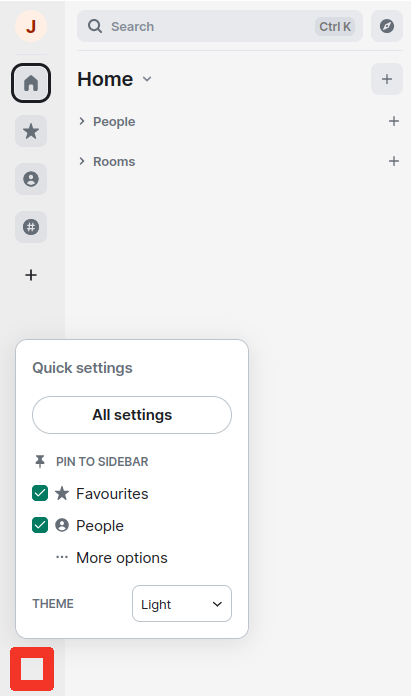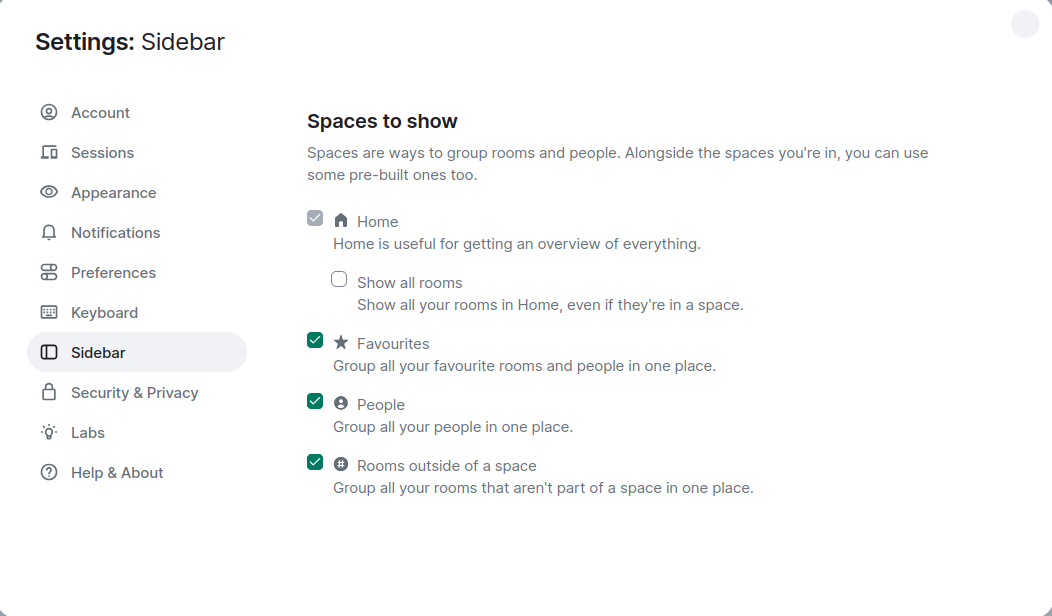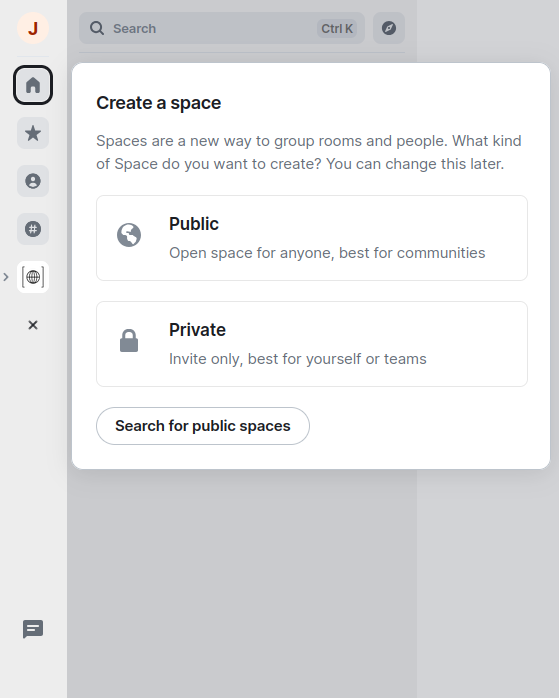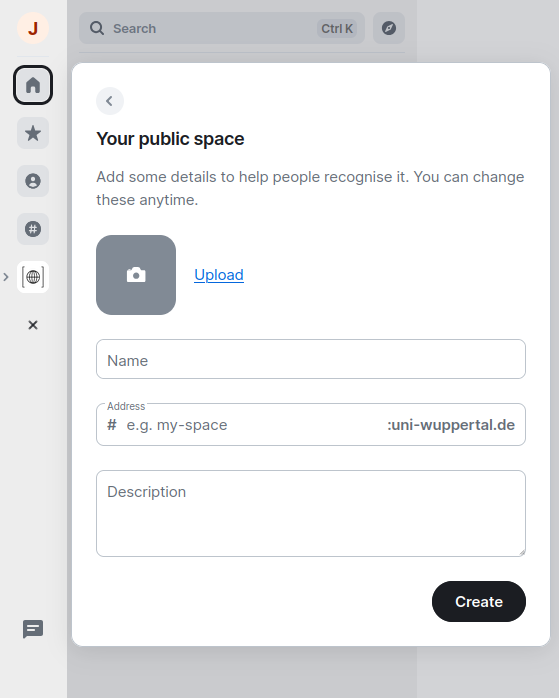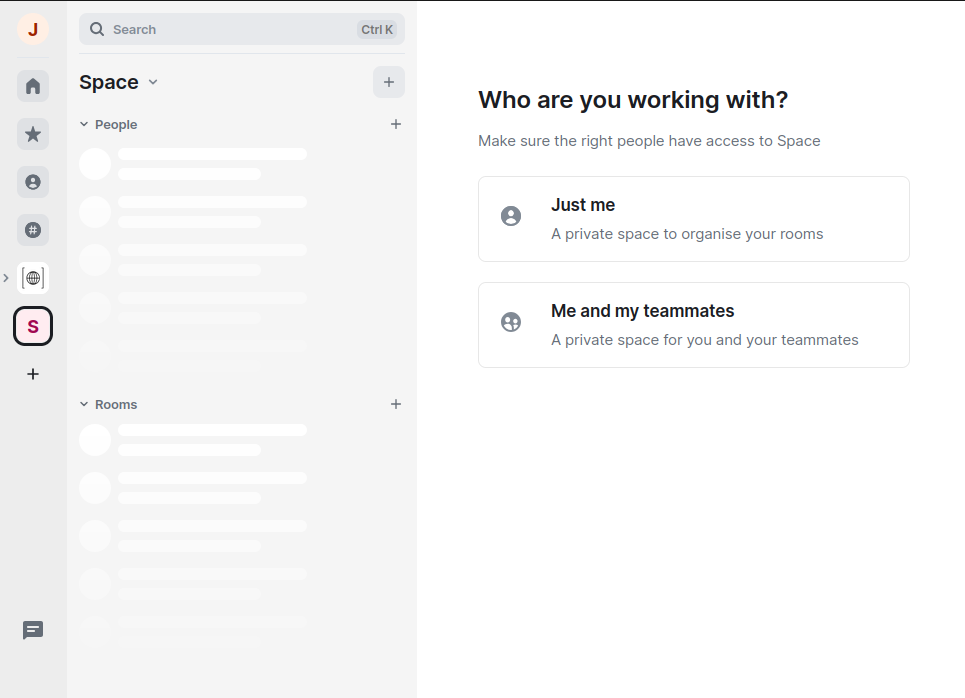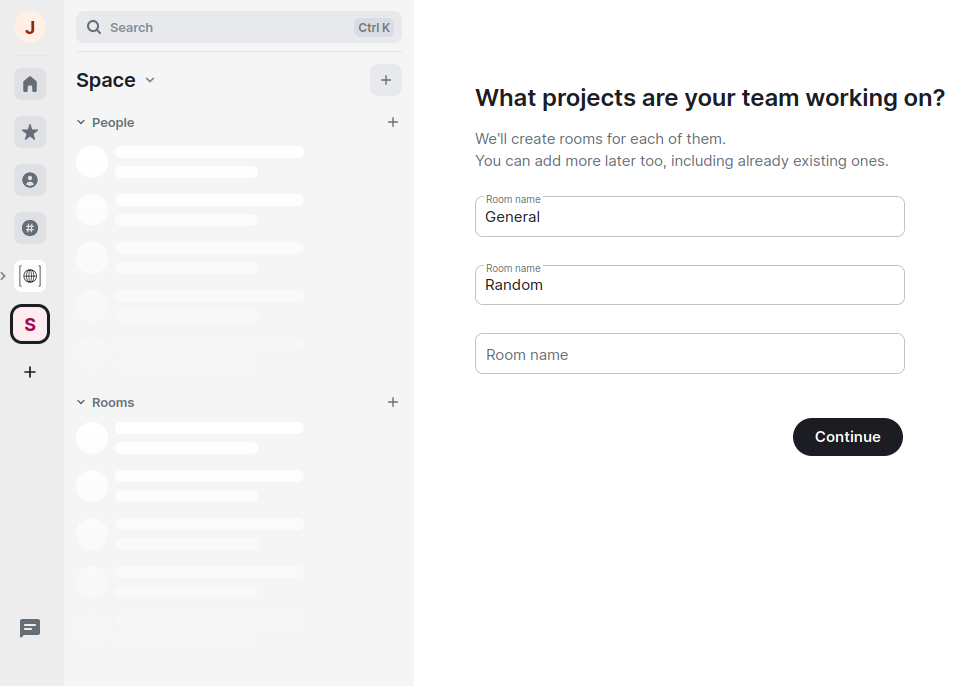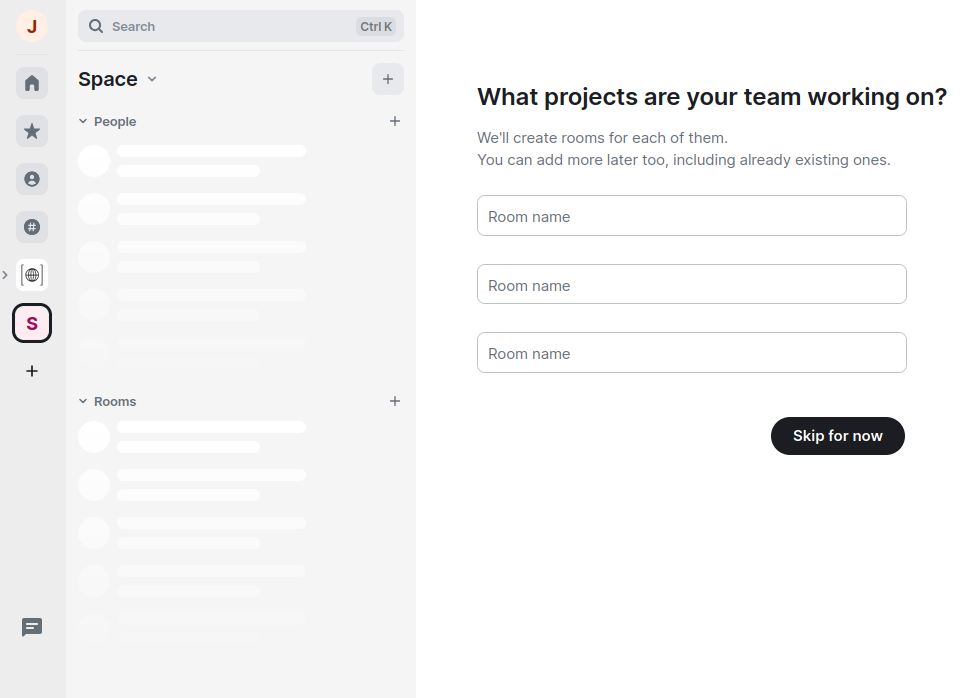Spaces
Overview
Spaces are a special type of room that allows the grouping of people, rooms and spaces (subspaces / spaces within spaces are possible), whereby all of these types of rooms (everything is ultimately a room - even chats with individual people are rooms) can be assigned to several spaces at the same time.
Joining: You join a space, which allows you to see the content and be listed among all the people who also belong to the space and you can see who is online and offline. Unless the Space Preview option is enabled in the space settings, then you can see the content of the space without joining, which is recommended for public spaces.
Types
There are three types of spaces:
-
Public Spaces
For: All
Only public spaces can be found via the space search (space bar on the left > plus icon > “Search for public spaces”). This is why only these have an address and an invitation is therefore not necessary. Alternatively, public spaces can be found via an access link (matrix.to/#/#name:uni-wuppertal.de). This type is suitable for open communities. -
Private Spaces
For: Invitees
If the space is private, joining is only possible through an explicit invitation, meaning it cannot be found via a “space search”. This type is suitable for closed groups that do not allow external users. -
Personal Spaces
For: Me
Personal spaces are used to organize your own rooms and people individually. This means that you do not invite other people to this space (you are the only member) and you do not create subspaces or rooms, but simply organize existing room types. In fact, such a space type does not exist and this is simply a private space that is used with the intention of a personal space.
Standard-Spaces
Element provides predefined personal spaces:
- Home
The home page is always active. It contains all conversations and rooms. Rooms that are part of a space can optionally be displayed. - Favorites
Includes all favorite conversations and rooms. - Persons
Includes all conversations. - Rooms without belonging to a space
Includes all rooms that are not part of a space.
To configure, open the “Quick Settings” as the last option in the Spaces column and select “More options” or go to the element settings and select the “Sidebar” option. The Favorites and People spaces can already be activated in the quick settings.
In the sidebar settings, you can activate the desired spaces or configurations using the respective checkbox.
Creation
Create a public, private or personal space using Space bar on the left > Plus icon. Only “Public” and “Private” are available here, because there are only these two types of space. A personal space is a private space, which only differ in how they are configured. That’s why after you have created a private space, you are asked whether you want to start configuring a private or personal space. This configuration is just a help and can be skipped completely if you click on another space.
Then you give your public or private space a name and a description (and for public spaces an address):
After clicking on “Create” the space is created and anyone who wants can use the configuration help.
Configuration help
Start
After creating the space, the configuration help for public spaces starts directly, but for private spaces you have to decide whether you want to start the configuration help for private or personal spaces:
Click on another room if you want to cancel the configuration help. After that, however, the configuration help cannot be called up again. However, you can configure the space completely without this initial help.
The configuration help for public, private and personal spaces is different and works as follows:
- Public Spaces
- Room creation
- Share Space
- Privat Spaces
- Room creation
- Invite people
- Personal Spaces
- Select rooms & conversations
Skip steps
If you want to skip the room creation step in the configuration help, which occurs in the configuration help for public and private spaces (but not for personal spaces), you must first empty all fields, then the option to skip will be suggested:
